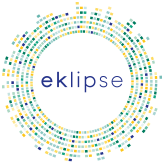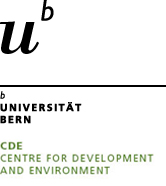Request > Impacts of European energy policy on global biodiversity
How are European energy policies affecting biodiversity and ecosystem services in countries globally?
Requester: Centre for Development and Environment University of Bern
Summary
Type of request: Knowledge Synthesis
This Eklipse activity aims to synthesise knowledge on the effect of low-carbon energy policy on biodiversity and ecosystem services beyond the EU boundaries. This information provides a better understanding of the current mechanisms by which energy policy interconnects with biodiversity and ecosystems services. As such, it seeks to inform policy makers, scientists, UN state members on the above issues and provides policy-oriented solutions to anticipate and mitigate these issues.
Reference: Request CfR.2/2017/1
Contact points
- KCB Focal Point: Rania Spyropoulou with the support of Flore Jeanmart and Miriam Grace (MEG)
- EMB Contact Point: Marianne Darbi and Karla E. Locher
Final outputs
DOW ( 19/09/2018)
Final report (04/07/2019)
Methods Protocol (04/07/2018)
Scientific Paper (30/07/2019)
Poster EUSEWPresentation-Energy Weeks, Brussels 2019
Podcast “Impacts of European energy policy on global biodiversity” on Anchor
The findings outline the role of RES and identify challenges based on the extensive experience of the participants. Best practices and integrated approaches are also highlighted to suggest ways to overcome and/or mitigate the impact of potential challenges.
Our key message is that incorporating telecoupling effects into EU energy policy can support staying within the safe zone in Europe while avoiding transgressing it elsewhere. The 2030 Agenda puts into perspective the safe zone between the ceiling imposed by nature and the floor set by social equity; according to this, all countries are developing countries because they transgress either the ceiling or floor.
Impacts in Policy
- United Nations: Global Sustainable Development Report 2019: The Future is Now – Science for Achieving Sustainable Development
While a renewable energy transition is necessary for decarbonisation, it has documented effects on marine ecosystems, avian biodiversity, competition with land use for food production, habitat loss, and deforestation, with potential spillovers beyond the EU territorial boundaries. Other trade-offs may occur, such as manufacturing hazards due to a growing demand for extractive resources needed to manufacture batteries and solar panels. Thus, the role of renewable energy sources in supporting a fossil fuel-free future is controversial, due to these associated pressures on landscapes, biodiversity, and ecosystems in Europe and beyond. On the other hand, it is clear that conventional energy sources likewise impact global biodiversity and ecosystem services. Therefore, the full costs and benefits of renewable energy sources must be compared to the opportunity costs of renouncing conventional sources. Our approach to this involves collating existing knowledge in this domain.
The request builds on the 2019 Global Sustainable Development Report (GSDR). The Global Sustainable Development Board addresses various SDGs’ perspectives, identifying how the SDG Report can help policy actors achieve their agendas and move towards greater policy coherence.
The scientists mandated to draft the GSDR 2019 seek a better understanding of the telecoupling effects of the EU’s low carbon energy policy on biodiversity and ecosystem services in countries globally, from an SDG perspective through two questions:
1- What are the SDG targets that the EU energy policy tries to pursue (also indirectly) and the systemic trade-offs and co-benefits created beyond the territorial boundaries, where, at what scale, and who are the affected winners and losers?
2- What policies and governance mechanisms could remedy these impacts; or in hindsight, how could one have chosen pathways to more sustainable development?
This request feeds the science-policy interface of the GSDR to inform policy.
Additional links:
1- Energy Policy: general principles, from the European Parliament.
Timeline
- Date request received: 2/10/2017
- Call for Knowledge: 23/01/2018
- Date of the first meeting with the requesters and EKLIPSE KCB and methods experts: 20/12/2017
This report results from a request from the Center for Development and Environment University of Bern in October 2017.
This EKLIPSE activity addresses three major objectives:
1. To produce synthesised knowledge on the effect of a low-carbon energy policy on biodiversity and ecosystem services beyond the EU boundaries
2. To better understand the mechanisms by which energy policy interconnects with biodiversity and ecosystems services in an unforeseen way
3. To inform policy makers, scientists, UN state members on the above issues and provide policy-oriented solutions to anticipate and mitigate these issues
Scoping phase
Eklipse Launched a Call for Knowledge (CfK) to explore the range of existing knowledge, asking for any reference to material, including grey literature and unpublished results to the topic. Unfortunately, these efforts yielded very little feedback. However, it was considered worthwhile to continue the scoping of the request. For this purpose, a short ad hoc literature screening was conducted by the Eklipse Secretariat, which yielded another three dozen sources relevant to the request.
Besides, experts and institutions were identified to be further reached to carry out the request.
The Eklipse Methods group (MEG) recommended an expert consultation approach with aspects of Fuzzy Cognitive Mapping and the Delphi process to address the request. The outputs would consist of a diagrammatic conceptual model of the interlinkages between EU energy policy efforts and sectors, focusing on trade-offs and synergies with the SDGs. Adjacency matrices were proposed to identify the strongest links and interrelations between concepts and terms.
Answering the request
Selection of a Research Assistant (see above)
Seeing the narrow timeline, the EKLIPSE team decided that instead of an expert working group, a consultant/research assistant shall be hired to carry out necessary analyses, which would then be discussed at a workshop with experts.
The framing for the research analyst’s work set the focus on the four main routes of the EU Energy Roadmap (energy efficiency, renewable energy, nuclear energy, and carbon capture and storage) and created a list of terms out of this. These terms would capture concepts from, broadly speaking, the policies concerned, the technologies involved, the biodiversity impacts and the SDGs affected.
In September 2018, Dr Alexis Meletiou (Helmholtz Centre for Environmental Research – UFZ, Leipzig, Germany) was hired as a research assistant to do conceptual work on the request (based on the methodological protocol) and to prepare a workshop with experts. This included a literature review on key energy policies in the EU and key renewable energy technologies (RETs). On this basis, a conceptual model of the interlinkages between EU energy policy efforts and sectors, focusing on trade-offs and synergies with the SDGs, was being developed by the EKLIPSE team, supported by the research assistant. This model served as the basis for discussion with experts during a workshop in November 2018.
Methods Protocol
Building on the extensive literature review of key energy policies in the EU and the renewables energy technologies (RET), a two-day expert workshop on these impacts was organised the 19 and 20 November 2018. The 19 participants were drawn from academic and scientific research organisations, policy-makers, the private sector, and NGOs. The findings outline the role of RES and identify challenges based on the extensive experience of the participants. Best practices and integrated approaches were also highlighted to suggest ways to overcome and/or mitigate the impact of potential challenges.
The participants developed conceptual models of the complex system involving EU RES policies for particular technologies. These affect various aspects of biodiversity and each of the SDGs. They assessed these interactions in terms of positive or negative effects and according to their relative strengths, using a Fuzzy Cognitive Mapping approach. We then integrated these individual models into a single model, comparing the relative, cumulative impacts of RETs on biodiversity and the SDGs.

Diagram of the process followed to synthesise knowledge for this request. The two main approaches were a non-systematic literature and policy review for background and an expert workshop using Fuzzy Cognitive Mapping to derive individual models of the system integrated into a single model. Due to time constraints, participants generally created their individual models with both terms and links simultaneously rather than first creating a list of terms and then assigning links.
Date and location: 19 – 20 November 2018 (two half-days), Brussels Office of the Helmholtz Association, Brussels.Workshop participants: Miriam Grace, Alexis Meletiou, Marianne Darbi, Myriam Pham-Truffert, Henri Rueff, Rania Spyropoulou, Allan Watt, Lea Appulo, Tom Clarkson, Gregor Erbach, Corrado di Maria, Cary Hendrickson, Reinhard Klenke, Agata Klimkowska, Ioannis Kougias, Paul Lehmann, Gerd Lupp, Hannah Montag, Brendan Moore, Leila Niamir, Zoltan Rakonczay, Pip Roddis, Marieke Sassen, Thomas Tscheulin, Julia Wiehe and Meseret Wondirad
Finalisation
The workshop’s findings, along with the preparatory conceptual work, have been integrated into a draft final report. The draft results have been delivered to the requester, and the draft report was reviewed by workshop participants and members of the EKLIPSE KCB.
In July 2019, the final report was published. Also, a related scientific paper on this request was issued.




